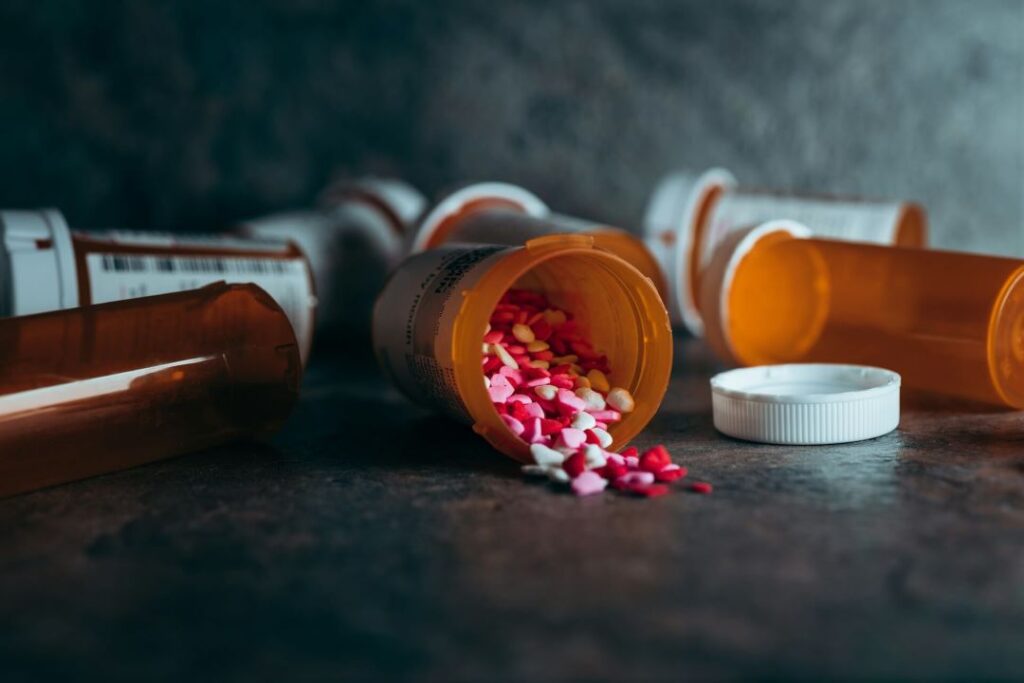
Table of Contents
Scientific evidence shows alcohol and drug addiction is a chronic brain disease. According to the National Institute on Drug Abuse, drug addiction can recur. By monitoring drug use and addiction, individuals struggling with addiction can recover. The National Institute on Drug Abuse also suggests that developing an addiction involves a three-stage cycle: intoxication, withdrawal, and preoccupation.
Problematic drug consumption can lead to addictive drug use. Some of the best treatment programs for alcohol or other drug addictions are self-help, medications, counseling, and withdrawal management.
Understanding Drug Use And Addiction
Millions of people around the world don’t know why or how individuals develop drug addiction. According to the National Institute on Drug Abuse, many people mistakably believe people get habitual to drug use because they lack willpower or morals. They think people can get rid of drug use and addiction by choosing to stop. But in reality, the development of drug addiction is something more complex. Quitting drugs or alcohol takes more than willpower and good intentions.
National Institute on Drug Abuse states that drug consumption affects the brain. This is why quitting drug use is hard, even for those who desire to quit drug use. The team of researchers at the National Institute on Drug Abuse knows all about substance use disorder. They understand how substance use disorder affects the brain. They want to save people from the ill effects of drug use. It wants to help to reduce drug addiction and lead more productive lives.
Symptoms of Drug Use And Addiction
Substance use disorder can have a huge impact on an individual’s brain and behavior. It makes a person struggling with drug use and addiction unable to control drug seeking and use.
According to the Drug Enforcement Administration, drug dependence can develop simply with an experimental use of alcohol or drugs. Repeated drug use makes a person associated with drug use ask for more. People with opioids often develop drug addiction when they take any prescribed medicines or get them from others having medicine prescriptions.
Drug addiction behaviors and systems include:
- Feeling of using the drug more regularly, daily, or even several times a day.
- Over time, individuals want to take the drug in more quantity
- Taking a recreational drug in large quantity over a long period without worrying about the risk of addiction.
- Ensuring large doses of the recreational drug are always available for you.
- Not meeting your work responsibilities and cutting back on social activities because of repeated use of a drug.
- Spending on drugs just to feel better, even if you don’t have the money, etc.
Understanding unhealthy types of drug use in family members
Physical Health Issues
- No Motivation
- Lack Of Energy
- Noticeable Weight Loss Or Weight Gain
- Red Eyes, etc.
Problems At School Or Work
- Frequently Missing Work Or School
- Sudden Disinterest In Work Or School Activities
- Drop in Work Performances Or School Grades, etc.
Changes In Behaviour
- Being Secretive
- Drastic Behavioural Changes
- Changes In Relationships With Family And Friends, etc.
Neglected Appearance
- Lack Of Interest In Grooming
- Lack Of Interest In Clothing
- Lack Of Interest In Maintaining One’s Looks
Money Problem
- Sudden Requests For Money Without Any Explanation
- Suddenly Discovering Money Has Been Stolen Or Missing
- Selling Things For Buying Drugs, etc.

Recognizing signs of drug use or intoxication
Using recreational drugs, prescription drugs, or over-the-counter medications can lead to addiction to drug use or alcohol. The development of addiction can lead to problems at school, home, work, and in relationships. If you are worried about how addiction affects your loved one, it is helpful to know drug use patterns and signs.
Common Signs
- People struggling with addiction have no problem with risk-taking while driving.
- People at great risk of drug use often neglect responsibilities at school, home, or work.
- They do not mind getting in legal trouble for driving under the influence of larger doses of the drug consumption.
Physical Warning Signs
- Bloodshot Eyes
- Changes In Appetite
- Changes In Sleep Pattern
- Changes In Physical Appearance
- Breathe Smells Unusual
- Impaired Coordination Of Clothing, etc.
Behavioral Signs
- Drop in Work Attendance
- Engaging In Suspicious Behaviors
- Sudden Change In Favorite Hangout Spots, etc.
Psychological Signs
- Unexplained Change In Attitude
- Sudden Irritability And Mood Swings
- Appears Paranoid For No Reason, etc.
When to seek help from a doctor
Are you or your loved one suffering from drug dependence and addiction? Do you believe drug use and addiction are preventable? You can always seek help from a doctor to assess your mental health addiction, according to a national survey on drug use. Showing no interest in things you previously used to enjoy before initial drug use is a sign you need a doctor.
When to seek emergency help for substance use disorder
Doctors are legally responsible for providing effective substance abuse treatment to drug users. Drug use continues to escalate in the United States. Addiction to alcohol, addiction to opioids, and addiction to compulsive drug-taking continue to rise in the United States. Thousands of people have died in the United States due to excessive drug consumption. If you believe you or your loved one needs treatment for drug addiction to recover from drug dependence, you can seek emergency help from the leading doctors and hospitals in the United States.
FAQs
Recovery is a process through which individuals associated with drug misuse and addiction can improve addiction psychiatry. It strives to help them with faster recovery from addiction.
Three types of addicts with drug problems are alcohol addicts, prescription addicts, and drug addicts. They are some of the most common types of addicts.
Drug overdose means when you take a large quantity of a medicine or drug than prescribed or recommended.
Addiction, in simple words, means when you feel a strong psychological need or a strong physical urge to use something or do something.
Drug abuse and addiction can put an emotional burden on the family. Family members may feel frustrated, angry, or depressed due to such behavior.
Behavioral therapy is the best treatment for recovering from addiction.
Family history of addiction, mental health disorders, and peer pressure are some common causes that can increase the risk for drug use.
The first step to overcoming addiction risk is to purge one's body of drugs and manage withdrawal symptoms.
You should not use a drug to overcome depression as it will make you feel worse and even lead to severe health issues, including addiction. Alcohol and drugs are only temporary fixes for depression.
Yes, drug craving is very common. It is a common symptom of addictive disorders and puts you at a greater risk of dependence on drugs.










